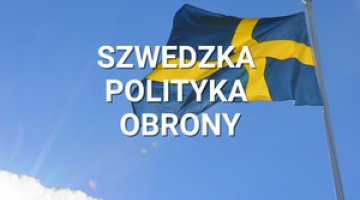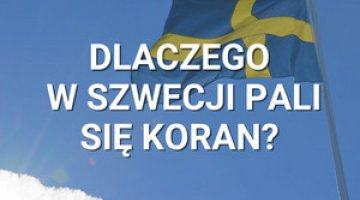The European Commission is ready to talk to Russia about Nord Stream 2
On 28 March, the European Commission sent a letter to the governments of Denmark and Sweden, in which it confirmed its position on Nord Stream 2: the project is not consistent with the objectives of the Energy Union, because it does not give access to new sources of gas, and strengthens the position of Russia as the largest supplier in the European market. In the current situation on the European market, the Commission was also unable to see any demand for the construction of new gas pipelines of the size of NS2. At the same time, the EC letter confirmed that the rules for applying EU law, including the Third Energy Package, to gas pipelines built along the sea bottom are unclear. EC stressed, however, that the NS2 could not be built and operated solely under the law of a third country, and nor could it operate in a legal void. The Commission considers that a specific legal regime should be laid down for the offshore part of the NS2, which would take some of the fundamental principles of the EU energy law into account. Consequently, the Commission stated in its letter that it will try to obtain a mandate from the Council to negotiate an agreement with Russia on NS2.
With regard to the sensitive question of whether NS2 should be subject to EU law, the careful language used in the letter signed by the EC’s Vice-President for the Energy Union and the Commissioner for Energy and Climate Action contrasts with the statement from the EC’s press spokeswoman Anna-Kaisa Itkonen, who on the occasion of discussing the letter with the media, said that although the Commission did not like the project politically, there are no legal grounds to oppose NS2 as EU rules do not apply to the offshore part of the project.
In parallel to the Commission's letter, on 30 March, dozens of members of the European Parliament, representing almost all the EU’s member states and political groups in the EP, submitted a letter to the President of the European Council and the Commission’s President, calling for urgent action to halt to the implementation of NS2.
The Commission's letter of 28 March is a response to calls by the governments of Denmark and Sweden for the EC to assess the NS2 project in the contexts of the market, the law, but also the (geo)political aspect. The Nord Stream 2 pipeline is intended to run through the Danish and the Swedish exclusive economic zone in the Baltic Sea as well as Danish territorial waters, hence the formal consent of both countries for the construction of the gas pipeline is required. The Danish Energy Agency received a letter on 3 April from the NS2 company requesting permission to lay out the pipeline’s route within the exclusive economic zone and in Denmark’s territorial waters.
Commentary
- The letter from the Commissioners, along with its answer to the letter of nine Central & East European member states from March 2016, are the only official documents in which the EC has stated its position concerning Nord Stream 2. Since the announcement of the project in 2015, the Commissioners have repeatedly spoken about the project, yet the EC has avoided publishing an overall assessment of NS2, its compliance with EU law and policy goals and its possible consequences. The only other disclosed document on it (which was made public in March 2017 on the Euractiv website) was the opinion of the EC’s legal advisors. It found that there was an ambiguity in the application of EU law in the case of NS2, which among other factors resulted from the conflict between two legal regimes, the EU’s and Russian, to which NS2 should be subject to as a gas pipeline with its beginning in Russia and its end in the EU. No other internal documents from the EC concerning NS2 have been disclosed, including the opinion of the lawyers of the Directorate-General on Energy, which apparently suggests a need for NS2 to comply with EU law.
- The Commission has so far avoided making a clear assessment of the project, due to its controversial nature. The EC’s current position, as presented in the letter to the energy ministers of Denmark and Sweden, does not dispel the doubts raised regarding the legal regime which the pipeline should be subject to. What is more, additional concerns have arisen in relation to the statement cited in the media by the EC’s spokeswoman, unambiguously stating that EU law does not apply to the offshore part of the project. This is the first such categorical statement on the part of the EU on this matter, which contrasts with the cautious wording in the EC’s letter, and it is unclear whether this corresponds to the position of the Commission. So far, despite the emerging questions, it has not been formally commented upon (confirmed or denied) by any senior EC official. The Commission’s letter does not also in any way address the questions about the geopolitical implications of the project, including for security in the Baltic Sea, which have been raised in the Nordic countries, among others.
- The debate related to the Commissioners’ letter and the statement by the EC spokeswoman confirms that the Nord Stream project 2 is deepening the divisions among EU member states. The project’s supporters include the businesses which favour it: Germany’s Uniper and Wintershall, Austria’s ÖMV, the Anglo-Dutch Shell and France’s ENGIE, and also – to a more or less formal degree – Germany, Austria, France and the Netherlands. Its opponents include Poland, the Baltic States and Slovakia. A number of EU member states appear to have an ambiguous attitude towards NS2; while appreciating the possible economic benefits associated with the project, at the same time they fear its negative effects in the field of security. These include the Czech Republic and the Nordic countries. The current discussion about the project also highlights the existing differences among EU institutions: NS2 is opposed by a large part of the European Parliament’s members, as is confirmed not only by the most recent letter of 30 March, but also by a number of other opinions (including the ITRE Committee) and statements. There is also much to indicate that differences of opinion regarding NS2 have arisen within the EC itself. On the one hand, NS2 has been criticised by the EC’s Vice-President for the Energy Union Maroš Šefčovič, and the Commissioner for Energy and Climate Action Miguel Arias Cañete. On the other hand, according to media reports, the project is supported by the very President of the EC, Jean-Claude Juncker, as well as the influential head of his Cabinet, Martin Selmayr of Germany. This means that the willingness expressed in the Commissioners’ letter to negotiate a specific legal regime for NS2, instead of subordinating of the planned pipeline to EU rules, may be interpreted as the political efficacy of the lobbying by those supporting the project.
- The EC is aware of the lack of hard, indisputable legal arguments against the NS2, and is thus stalling in an attempt to delay the implementation of the project – ideally beyond 2019, when the current transit agreement between Russia’s Gazprom and Ukraine’s Naftogaz expires. By signalling the need to maintain the transit of gas from Russia via Ukraine, which is one of Brussels’ policy objectives regarding Kiev, the EC is thus trying to de facto force the Russian side to agree a new contract with Ukraine on the transit of Russian gas after 2019.
- Due to the fundamental differences among the member states of the EU regarding NS2, the European Commission will find it hard to obtain a mandate from the Council to negotiate with Russia. The Council’s agreeing a mandate to negotiate an agreement within the framework of the EU energy policy would require obtaining unanimity among the EU countries. Any attempt by the Commission to undertake negotiations to conclude an international agreement with Russia on the NS2 would entail risks for the EU. In particular, Brussels beginning political negotiations with Moscow on the application of the rules of EU law, though formally permissible, could set a risky precedent from the point of view of maintaining the coherence of EU energy legislation. It would, in fact, mean agreeing to the adoption by political negotiation of arrangements weakening the restrictive regulations in the sphere of energy which operate in the interest of the EU as a whole.
- In an official statement issued by the Nord Stream 2 AG company (as well as in most Russian media) emphasis was laid above all on the favourable statement made by the EC’s spokeswoman that the offshore part of the gas pipeline was not covered by the regulations of the EU’s energy legislation (in particular, the rules of the so-called Third Energy Package). It was stressed that any legal issues related to the implementation of the investments are in the competence of the EU member states. These comments deliberately omitted the portion of the letter in which the advisability of constructing a new transmission infrastructure from Russia to Europe was questioned; moreover, in Nord Stream 2 AG’s official position, the aims of the Energy Union which do not interfere with the project were selectively highlighted. In a statement, the Nord Stream AG 2 company indicated that no intergovernmental agreements can serve as a precondition for the implementation of projects such as Nord Stream 2. This could suggest that at this stage Russia is not interested in undertaking negotiations with the EC. Moscow is hoping that Brussels will ultimately adopt the position that the EU’s energy law should not apply to the offshore part of NS2, which would be the best option for Russia. However, it is likely that, if the EC receives a mandate from the Council to start talks with Russia, then Moscow – while officially appearing unwilling to hold political talks – would try to use them to develop precedent-solutions which could limit many of the provisions of EU law which currently work to Russia’s disadvantage.
- Russia’s determination in relation to the implementation of the NS2 project remains unshaken, although recently Moscow has been sending ever clearer signals suggesting that in return for the EC’s favour regarding NS2, it is ready to continue some transit of Russian gas via Ukraine after 2019. One confirmation of this came in Vladimir Putin's statement of 22 March, during a meeting with Kurt Bock, the president and chief executive officer (CEO) of the German company BASF. The Russian president emphasised that the Nord Stream project 2 is purely economic, and its construction is completely natural in the light of the decline of gas output in Europe. He added that Russia is ready to work with Ukraine as a transit country, provided that beneficial economic criteria can be agreed upon. The Russian position meets the Brussels’ expectations, which in previous statements about NS2 has highlighted the need to maintain Russian gas transit via Ukraine. It is in the interest of Gazprom itself to conclude a new Russian-Ukrainian transit contract; even if two lines of the NS2 pipeline and one line of the Turkish Stream pipeline are handed over for use before 2019, the Ukrainian route will – if the current supply volumes are maintained – be necessary to meet the contractual obligations for countries in Southern Europe.
- For the Danish government the Commission’s letter, despite its ambiguity, is politically advantageous. The EU's commitment to the issue of the project is consistent with the interests of Denmark, which does not support the construction of a gas pipeline, but does not want to block it independently, either. The project is supported by Germany (Denmark’s largest trading partner), but it raises geopolitical concerns, and it is opposed by the United States (Denmark’s most important ally) and Denmark’s regional partners (such as Poland and the Baltic states). Denmark thus finds itself in a difficult position with regard to NS2. In contrast to Sweden and Finland, the route of the planned pipeline runs not only through the exclusive economic zone (which is an area of limited state jurisdiction), but also via Danish territory (territorial waters). This gives Denmark the option of refusing consent to the pipeline’s proposed route. However, Denmark’s room for manoeuvre on NS2 is limited by its interpretation of the Convention on the Law of the Sea (article 79) from 2009. Meanwhile, the Danish government has agreed to the construction of the first two lines of the Nord Stream pipeline, arguing that on the basis of the Law of the Sea, Denmark was obligated to do so.
- The letter from the EC, and the NS2 company’s application for permission to set the route of the gas pipeline in the Danish EEZ and territorial waters, have rekindled public debate about the project in Denmark. The left-wing opposition are opposed to it, and are using the NS2 question to criticise the conservative-liberal government. Giving consent to construct NS2 is opposed by the former Prime Minister of Denmark (and former Secretary-General of NATO) Anders Fogh Rasmussen, among others, while the nationalist Danish People's Party supports the construction of the gas pipeline. Alongside the traditional arguments against NS2 (geopolitical issues and the project’s non-compliance with the Third Energy Package), new arguments have appeared. Some media and opposition politicians have drawn attention to the fact that the government's interpretation of the Law of the Sea from 2009 is incorrect, and Denmark was indeed able to withhold consent from the construction of Nord Stream in its territorial waters. In response, the Danish Energy Ministry issued a statement on 30 March in which it reiterated the arguments put forward in 2009. In accordance with this, laying the pipeline in Danish territorial waters south of Bornholm was the most advantageous option from the point of view of Danish interests, because Denmark could not have blocked its construction to the north of the island (in the exclusive economic zone), which would have adversely affected shipping in that area.
- The NS2 question and the EC’s letter have also been the subject of lively debate in Sweden. Stockholm would be satisfied if the EC obtained a mandate to negotiate with Russia on NS2. If the Commission took responsibility for the future of the project – at the request of the Swedish energy minister, among others – this would fcounteract the criticism by the conservative opposition of the Stefan Löfven government concerning the lack of Swedish activity at the EU level to block NS2. Sweden is sceptical about the NS2 project, but cannot see any legal possibility of denying permission for the construction in its exclusive economic zone (Nord Stream 2 AG filed the request in Stockholm on 16 September 2016). The question of NS2 was raised on 27 March, on the occasion of a visit to Sweden by the Vice-President of the European Commission in charge of Energy Union, Maroš Šefčovič. The minister for policy coordination and energy in the Office of the Prime Minister of Sweden, Ibrahim Baylan, said he was pleased that the EC has become more active in the matter of the construction of NS2, and hoped that it would receive a mandate to negotiate with Russia from the EU member states.
Agata Loskot-Strachota, Szymon Kardaś, Piotr Szymański, with cooperation from Justyna Gotkowska





